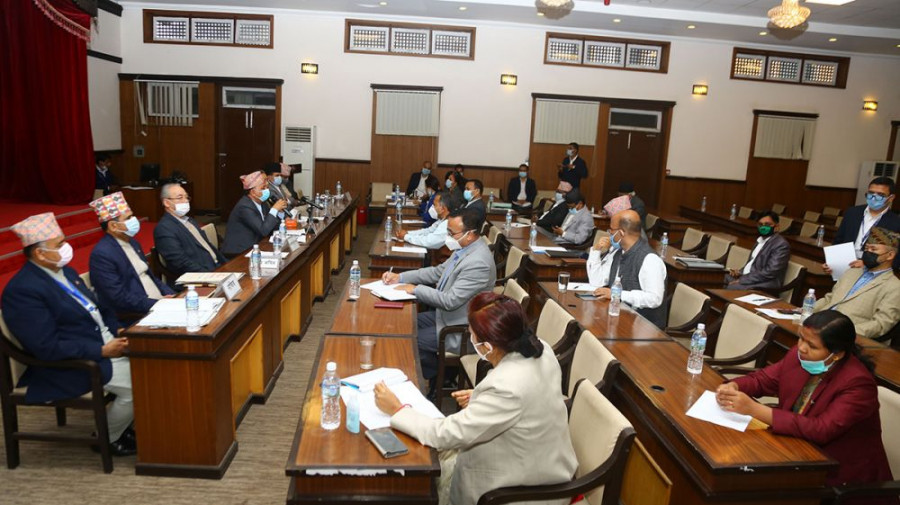National
House panels aren’t doing their part when government decisions are being questioned
Parliamentary committees should spring into action when the House has been rendered ineffective, analysts say.
Binod Ghimire
The meeting of the reinstated House of Representatives has been limited to formalities as the government is reluctant to provide it business. Ever since the lower house was reinstated by the Supreme Court, its meetings have been limited to holding zero hour sessions and endorsing condolence motions on the deaths of lawmakers from the present and previous parliaments.
The first meeting of the reinstated Parliament was held on March 7.
While the government of KP Sharma Oli, who dissolved the House on December 20 last year, is making every effort to prove the lower house irrelevant, opposition parties too haven't played their roles to make the legislature a functioning institution.
In parliamentary democracy, there are a number of committees to make the task of Parliament effective. These committees function as mini parliaments.
Their role increases when the House is ineffective and is not in session. Not just the full House, parliamentary committees also have the responsibility of monitoring the government’s actions and the functioning of other state bodies by bringing the executive’s decisions to the public domain for national debate.
However, these mini parliaments, like the House, have also become ineffective.
The federal parliament has 16 committees—10 under the House of Representatives, four under the National Assembly and two joint ones with lawmakers from both houses.
“There is an opportunity for the mini parliaments to perform their job of holding the government to account while the House of Representatives is limited to formalities,” Som Bahadur Thapa, former secretary at the Parliament Secretariat, told the Post. “However, they too have fared poorly in fulfilling their responsibilities.”
Ever since the House was reinstated by the Supreme Court a month ago, a majority of the House committees have met at least once. However, most of these committee meetings were rather a formality, a meet and greet session after the reinstatement of the House. Except for the parliamentary committees for development, law and justice, and state affairs, no other committees have started their work.
Every parliamentary committee has the jurisdiction to monitor the works of the respective ministries and departments and give them necessary directives if necessary. The Education and Health Committee of Parliament, for instance, monitors the activities of the Ministry of Education and the Health and Population Ministry.
Health and education are the two sectors hit hardest by the Covid-19 pandemic. The education minister has made several controversial decisions recently including his pressure to grant university affiliation to B & C Medical College of Birtamod, Jhapa despite legal barriers. However, the committee hasn’t intervened in the matter.
“It is the responsibility of the House committee to intervene,” Taranath Ranabhat, former Speaker of the House, told the Post. “Once decisions are made, they are difficult to correct.”
Ranabhat says while all the parliamentary committees have a crucial role, the Public Accounts Committee and the State Affairs and Good Governance Committee are more important. As the Public Accounts Committee has the jurisdiction to check the financial activities, there is a practice of giving its leadership to the opposition party.
However, the committee led by Bharat Shah of Nepali Congress, too, has failed to perform effectively.
“Our committee needs to become more effective now and we have conveyed our message to the chairperson,” Rekha Sharma, a member of the committee, told the Post. “However, the committee’s performance remains sluggish.”
The parliamentary committees have been criticised for underperformance even during the normal times. They have been accused of making arbitrary decisions for short-term publicity and failing to do adequate consultations and research.
Shashi Shrestha, chairperson of the State Affairs Committee, said it's not that they are reluctant to perform their job to hold the government to account, it’s the government’s non-cooperation that is affecting the functioning of parliamentary committees.
“The House of Representatives is not the only body suffering from the government's indifference, the House committees are also facing similar problems,” she told the Post. “The ministers are reluctant to respond to our concerns.”




 13.12°C Kathmandu
13.12°C Kathmandu














